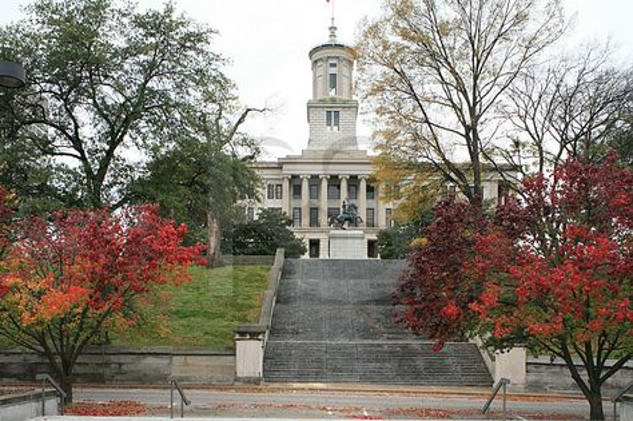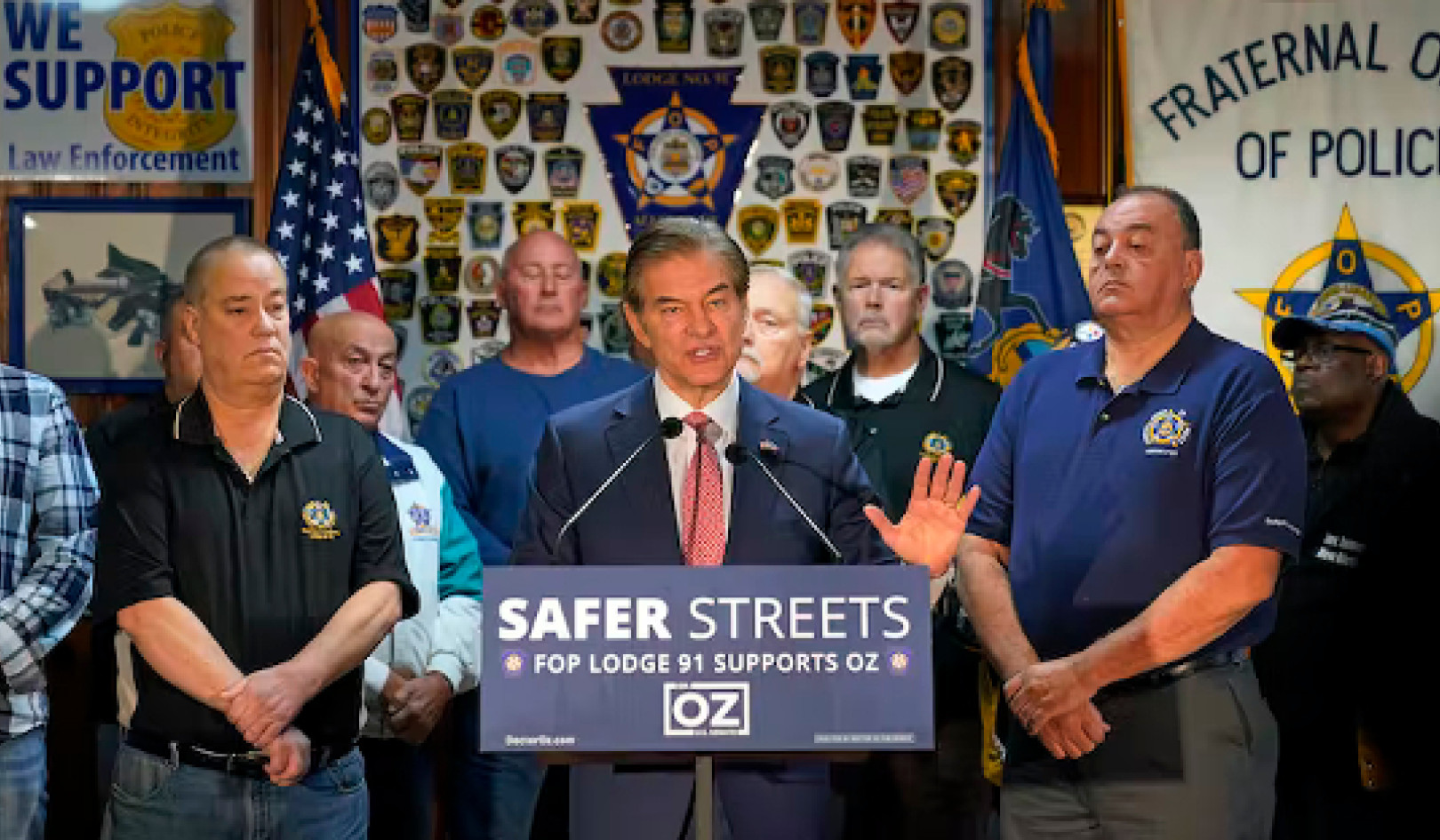
Over the years, the United States has been a beacon of democracy, embracing values like voter engagement, checks and balances, and impartial administration. However, recent times have witnessed concerns about democratic backsliding, where erosion of democracy occurs as political institutions degrade. One state that serves as an exemplar of this phenomenon is Tennessee. Once known for its bipartisan culture and successful governance, Tennessee has become a cautionary tale of one-party rule and democratic decay.
The Rise of Partisan Rule
Despite being a red state where Donald Trump secured 61% of the vote in 2020, Tennessee has changed its political landscape. One key contributing factor to this shift is gerrymandering, a practice where political districts are redrawn to favor one party. As a result of gerrymandering, Tennessee Republicans now control a staggering 82% of Senate seats and 76% of State House seats, granting them an overwhelming supermajority in the state's legislative bodies.
With such a dominant majority, the Republican Party has taken bold actions to solidify its power and push through an agenda that aligns with its core values. However, these actions have raised concerns about democratic backsliding and the erosion of democratic principles in Tennessee.
Expelling Democratic Lawmakers and Targeting Nashville
In the spotlight of Tennessee's backsliding democracy is the Republican supermajority's decision to expel two black Democratic lawmakers. This controversial move gained national attention and raised questions about the suppression of minority voices in the state's political arena. The supermajority is willing to stifle opposition and maintain an iron grip on power by removing elected officials for opposing views.
Furthermore, the Republican-controlled legislature has targeted Nashville, the state's largest and largely Democratic city, with measures to weaken its governing council. Attempts to cut the board in half, undermining the voice of its citizens, further underscore the extent of the supermajority's desire for control and dominance.
Stringent Abortion Bans and Unconstitutional Restrictions
Another clear manifestation of Tennessee's backsliding democracy is the enactment of stringent abortion bans and state-wide restrictions on drag performances. The Republican supermajority has leveraged its power to pass some of the most restrictive abortion laws in the country. These measures have sparked controversy and debates surrounding reproductive rights and individual freedoms.
Additionally, Tennessee's legislative actions have included restrictions on drag performances, deemed unconstitutional by the courts. These moves reflect a broader trend of using divisive social issues to rally support and energize the supermajority's base, further polarizing the political landscape.
From Bipartisan Model to One-Party Rule
Tennessee's journey from a model of bipartisanship in the 80s and 90s to a one-party rule state has not occurred overnight. The once-bipartisan state, ruled by moderate Democrats and liberal Republicans, has experienced a radical transformation in its political climate.
Today, the Republican supermajority holds sway over all aspects of Tennessee's governance, from the state legislature to appointing court positions. This unbridled control has, surprisingly, not led to a more inclusive and moderate approach to management. Instead, it has frustrated the ruling party as they struggle to enact extreme measures with limited opposition.
Frustration Breeding Radicalization
With complete control, one might expect a sense of satisfaction and a willingness to govern with consideration for diverse perspectives. However, Tennessee's supermajority has experienced frustration and radicalization in its pursuit of power. Being unable to achieve all of its most partisan objectives has only fueled a desire for even more dominance, leading to a more radical approach to governance.
Moreover, national politics and media influence significantly shape the party's priorities and actions. As national issues dominate the media landscape, voters in Tennessee are motivated by headline culture war issues rather than the pressing matters that require attention in their state.
Challenges to Tennessee's Democratic Soul
As Tennessee's democratic soul faces challenges amid backsliding, its reputation as a bipartisan state is slipping away. The erosion of democratic institutions, suppression of opposition voices, and the pursuit of divisive social issues have sparked concerns about the future of democracy in the state.
Tennessee's path serves as a reminder of the importance of maintaining checks and balances within a democracy. As the state grapples with the consequences of one-party rule, it is essential to recognize the significance of preserving democratic values, protecting voting rights, and ensuring citizen representation.
Only through a commitment to open dialogue, bipartisanship, and engagement can Tennessee and the broader United States overcome the challenges of backsliding democracy and reaffirm their status as solid and vibrant democratic nation.
About the Author
 Robert Jennings is co-publisher of InnerSelf.com with his wife Marie T Russell. He attended the University of Florida, Southern Technical Institute, and the University of Central Florida with studies in real estate, urban development, finance, architectural engineering, and elementary education. He was a member of the US Marine Corps and The US Army having commanded a field artillery battery in Germany. He worked in real estate finance, construction and development for 25 years before starting InnerSelf.com in 1996.
Robert Jennings is co-publisher of InnerSelf.com with his wife Marie T Russell. He attended the University of Florida, Southern Technical Institute, and the University of Central Florida with studies in real estate, urban development, finance, architectural engineering, and elementary education. He was a member of the US Marine Corps and The US Army having commanded a field artillery battery in Germany. He worked in real estate finance, construction and development for 25 years before starting InnerSelf.com in 1996.
InnerSelf is dedicated to sharing information that allows people to make educated and insightful choices in their personal life, for the good of the commons, and for the well-being of the planet. InnerSelf Magazine is in its 30+year of publication in either print (1984-1995) or online as InnerSelf.com. Please support our work.
Creative Commons 4.0
This article is licensed under a Creative Commons Attribution-Share Alike 4.0 License. Attribute the author Robert Jennings, InnerSelf.com. Link back to the article This article originally appeared on InnerSelf.com

Related Books:
On Tyranny: Twenty Lessons from the Twentieth Century
by Timothy Snyder
This book offers lessons from history for preserving and defending democracy, including the importance of institutions, the role of individual citizens, and the dangers of authoritarianism.
Click for more info or to order
Our Time Is Now: Power, Purpose, and the Fight for a Fair America
by Stacey Abrams
The author, a politician and activist, shares her vision for a more inclusive and just democracy and offers practical strategies for political engagement and voter mobilization.
Click for more info or to order
How Democracies Die
by Steven Levitsky and Daniel Ziblatt
This book examines the warning signs and causes of democratic breakdown, drawing on case studies from around the world to offer insights into how to safeguard democracy.
Click for more info or to order
The People, No: A Brief History of Anti-Populism
by Thomas Frank
The author offers a history of populist movements in the United States and critiques the "anti-populist" ideology that he argues has stifled democratic reform and progress.
Click for more info or to order
Democracy in One Book or Less: How It Works, Why It Doesn't, and Why Fixing It Is Easier Than You Think
by David Litt
This book offers an overview of democracy, including its strengths and weaknesses, and proposes reforms to make the system more responsive and accountable.


























